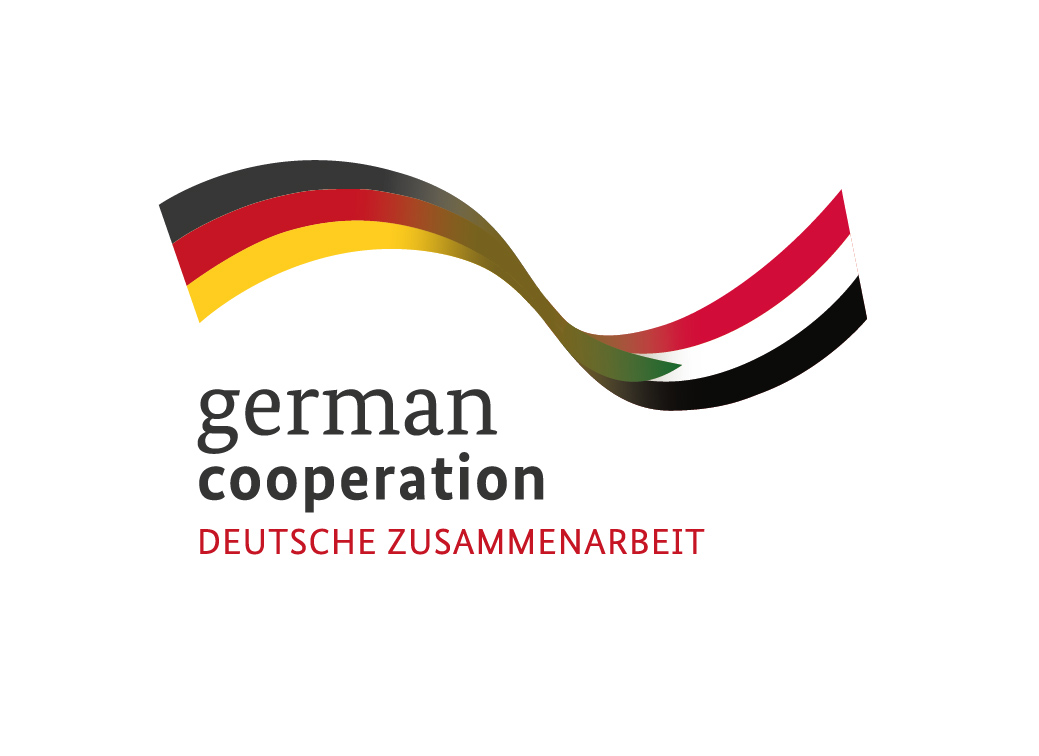Monitoring and Documentation of Human Rights Violations in Sudan, Symposium 17 July 2023, Workshop 18–19 July 2023
With the financial support of the German Federal Foreign Office and the Ministry of Foreign Affairs of the Netherlands.
Workshop videos:
Nairobi, Kenya – On 17 July 2023, the Wayamo Foundation held a symposium in Nairobi, Kenya, dedicated to honoring International Justice Day. The event, focused on the Monitoring and Documentation of Human Rights Violations in Sudan, and aimed to draw attention to the ongoing atrocities in the war-torn nation and advocate for justice and accountability for the victims.
Gathering at the Graduate School of Media and Communications at the Aga Khan University, the symposium welcomed a diverse audience, including members of the Sudanese diaspora, renowned international and Kenyan experts, lawyers, and representatives from civil society, both in Sudan and in the region.
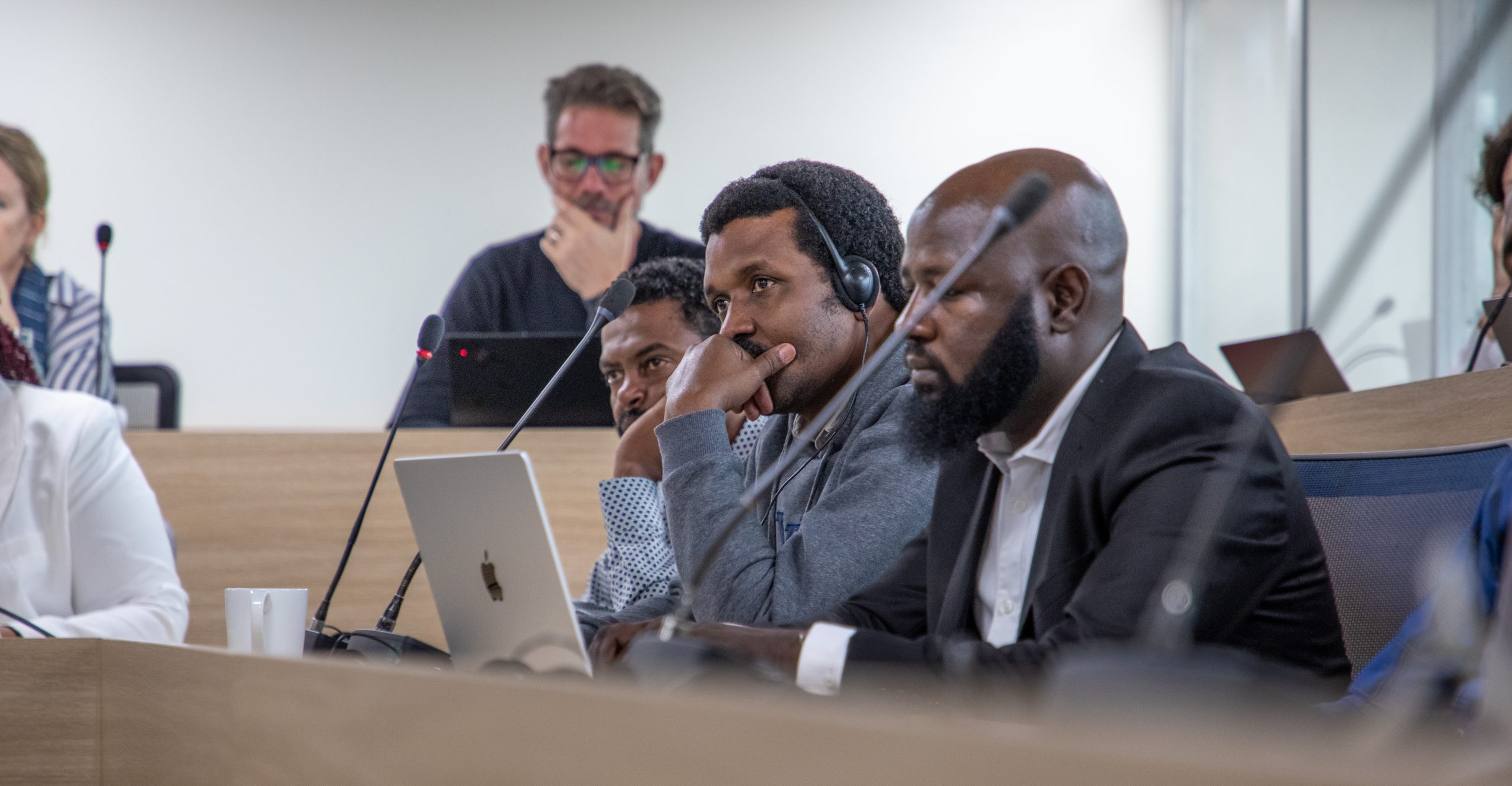
The event was opened by Wayamo Director Bettina Ambach, who stressed that 25 years after the adoption of the founding treaty of the International Criminal Court on 17 July 1998, the importance of fighting against impunity and bringing justice for the victims of war crimes, crimes against humanity, and genocide has never diminished.
“While we want to honour International Justice Day, we — more importantly — want to direct our attention to the war in Sudan, the terrible crimes and atrocities perpetrated daily since the outbreak of the hostilities on 15 April of this year.”
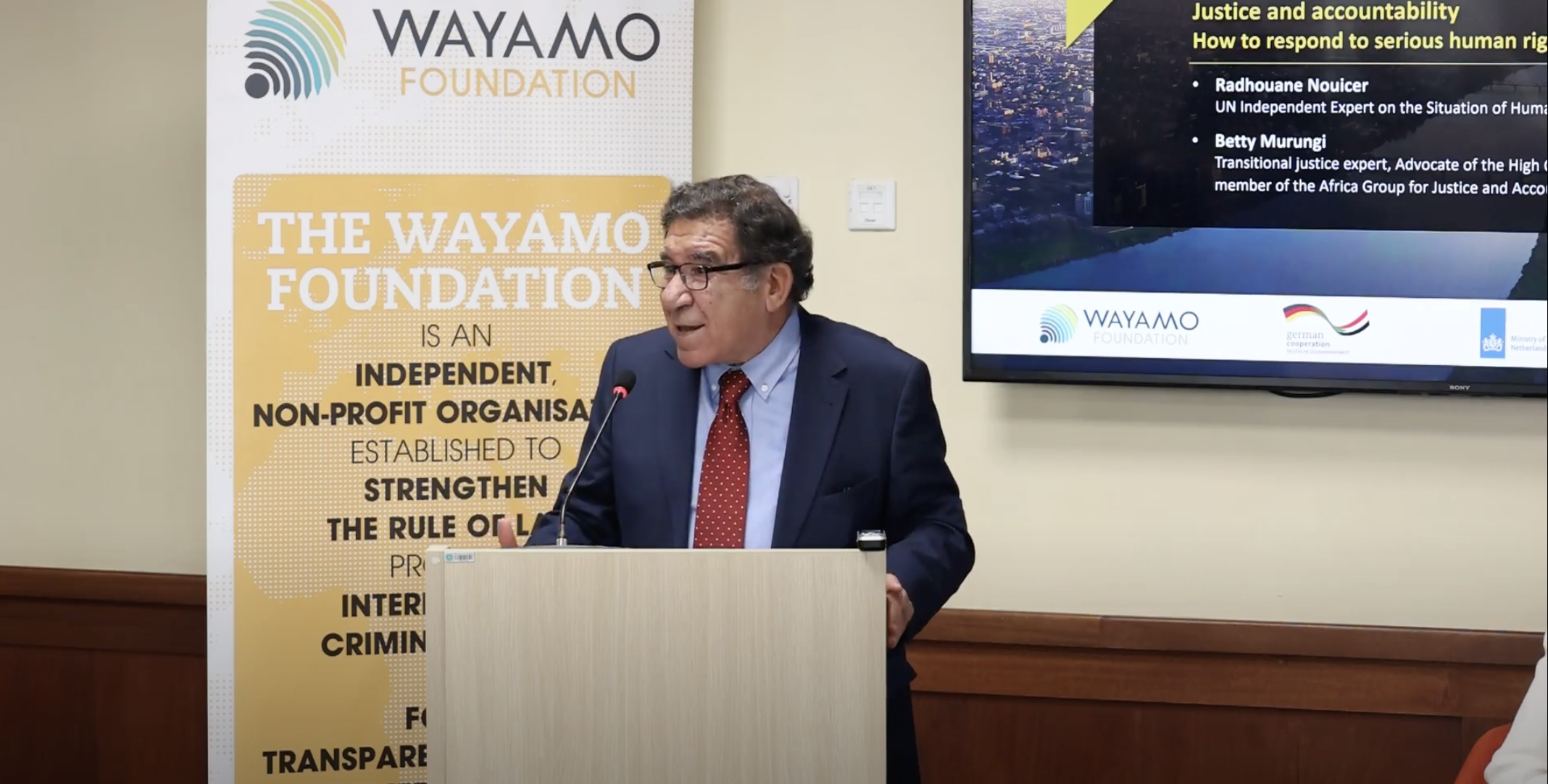
Radhouane Nouicer, the UN Independent Expert on the Situation of Human Rights in Sudan, echoed her call, stressing that the violence and atrocities in Sudan went beyond what he had seen in his 30-years humanitarian career.
“We need justice in Sudan. This is not politics, it is humanity,” he said.
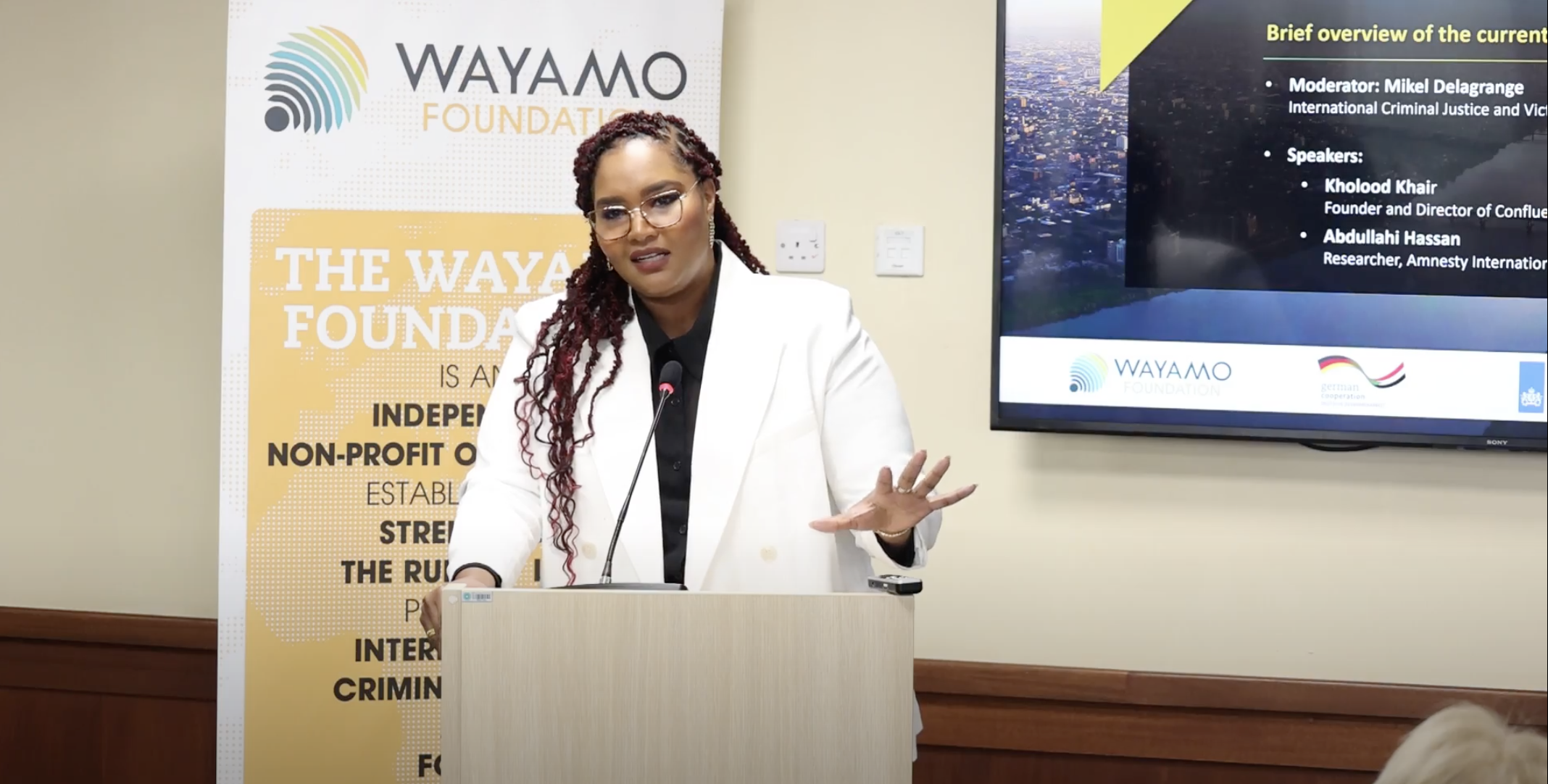 Sudanese analyst Kholood Khair, Founder and Director of Confluence Advisory, pointed out that the war in Sudan was brought about because of many years of impunity, and that it not only included the Sudanese Armed Forces and the Rapid Support Forces militia fighting against each other, but also both sides fighting against civil society actors.
Sudanese analyst Kholood Khair, Founder and Director of Confluence Advisory, pointed out that the war in Sudan was brought about because of many years of impunity, and that it not only included the Sudanese Armed Forces and the Rapid Support Forces militia fighting against each other, but also both sides fighting against civil society actors.
“Ending the war is not the only thing to do,” she said. “We have to end the war on civicism and finally include accountability.”
Abdullahi Hassan, a researcher at Amnesty International who recently conducted research among refugees in Eastern Chad, spoke during a panel on the overview of the current armed conflict in Sudan, focusing on crimes in West Darfur.
“We identified the following crimes in West Darfur: Deliberate attacks on civilians, people caught in crossfire, looting and destruction, colocation of RSF in heavily populated areas,” he said. “This was widespread and happening in several towns, the patterns were the same.”
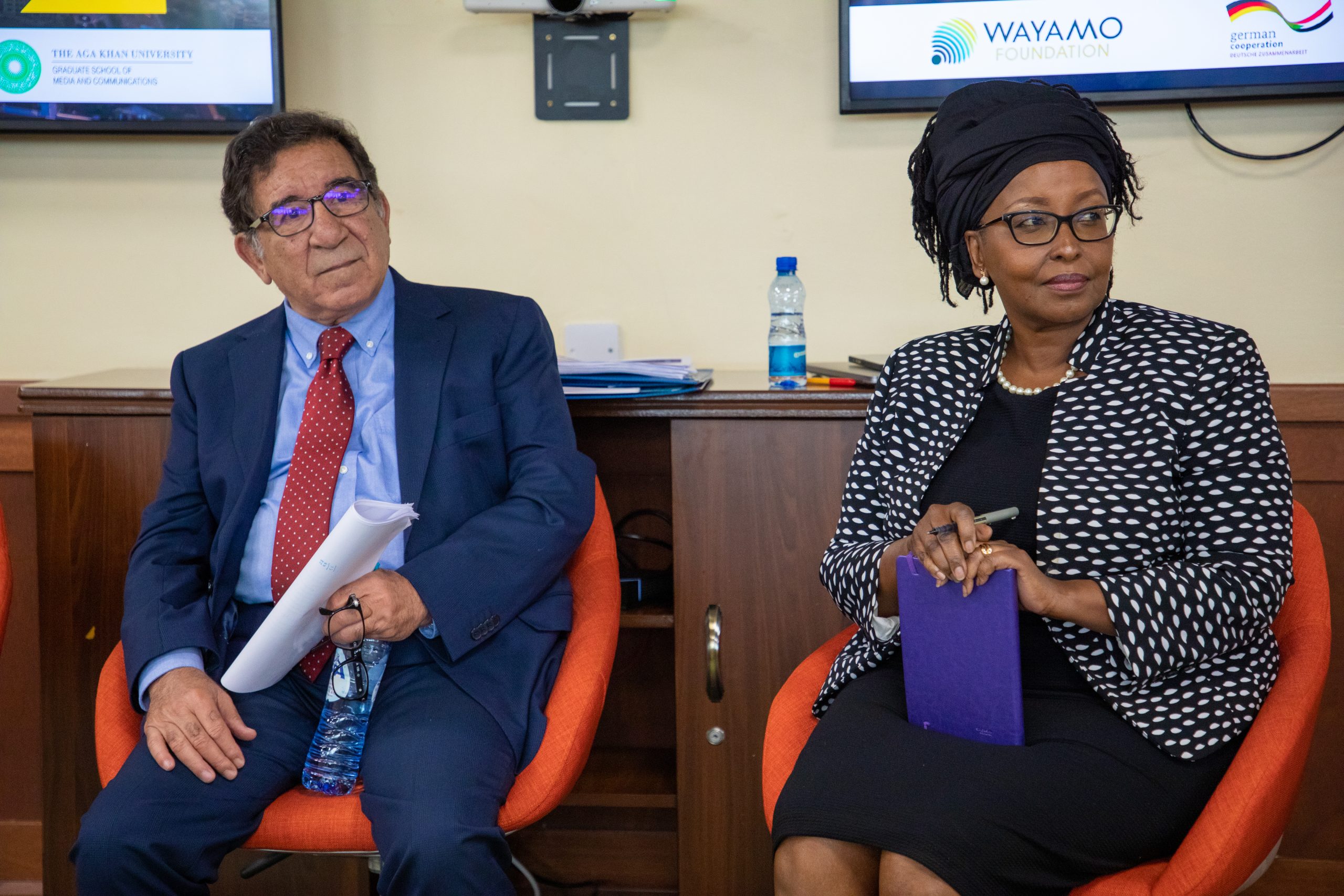
Betty Murungi, a Transitional Justice Expert, Advocate of the High Court of Kenya, and member of the Africa Group for Justice and Accountability (AGJA), focused on the long fight for accountability in Sudan.
“We celebrate International Justice Day, but after 20 years of impunity in Darfur we have new atrocities happening and absolutely no justice,” she said.
She added that a solution to impunity could lie in using universal jurisdiction provisions to go after those responsible for the violence.
“It is misguided to think that the ICC can solve all our problems,” she said. “Universal Jurisdiction is a good mechanism to end impunity and an answer to the limitations of the ICC. Another answer is the strengthening of our national justice systems, so that justice can be done and seen to be done at home.”
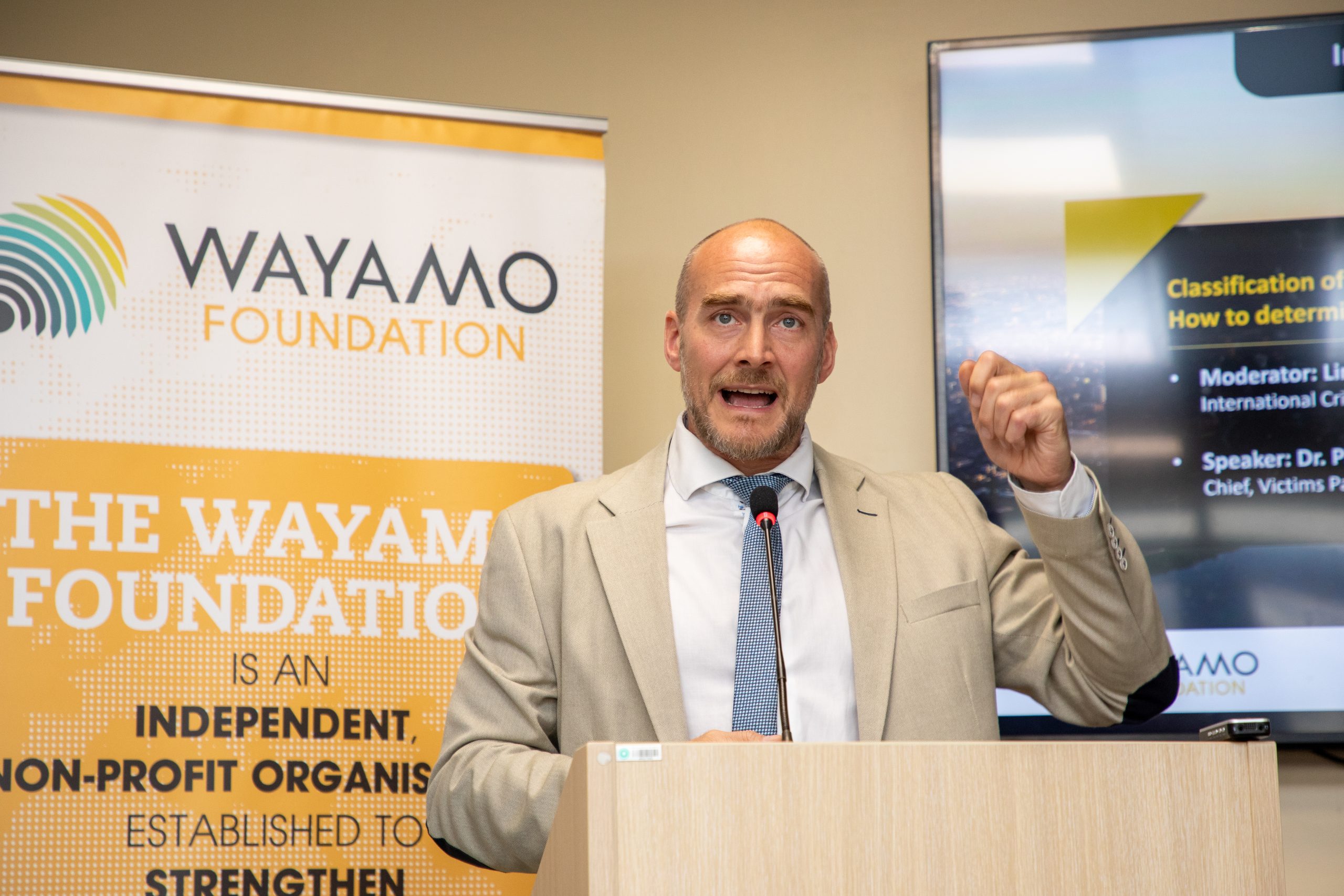 In a panel about the classification of international crimes in Sudan under the Rome Statute of the ICC, Philipp Ambach, the Chief of the ICC’s Victims Participation and Reparations Section, noted that prosecuting international crimes is difficult. He highlighting the example of the crime of genocide where prosecutors need evidence to establish that people were targeted by virtue of membership of a specific group rather than for other factors, such as occupying a piece of contested land.
In a panel about the classification of international crimes in Sudan under the Rome Statute of the ICC, Philipp Ambach, the Chief of the ICC’s Victims Participation and Reparations Section, noted that prosecuting international crimes is difficult. He highlighting the example of the crime of genocide where prosecutors need evidence to establish that people were targeted by virtue of membership of a specific group rather than for other factors, such as occupying a piece of contested land.
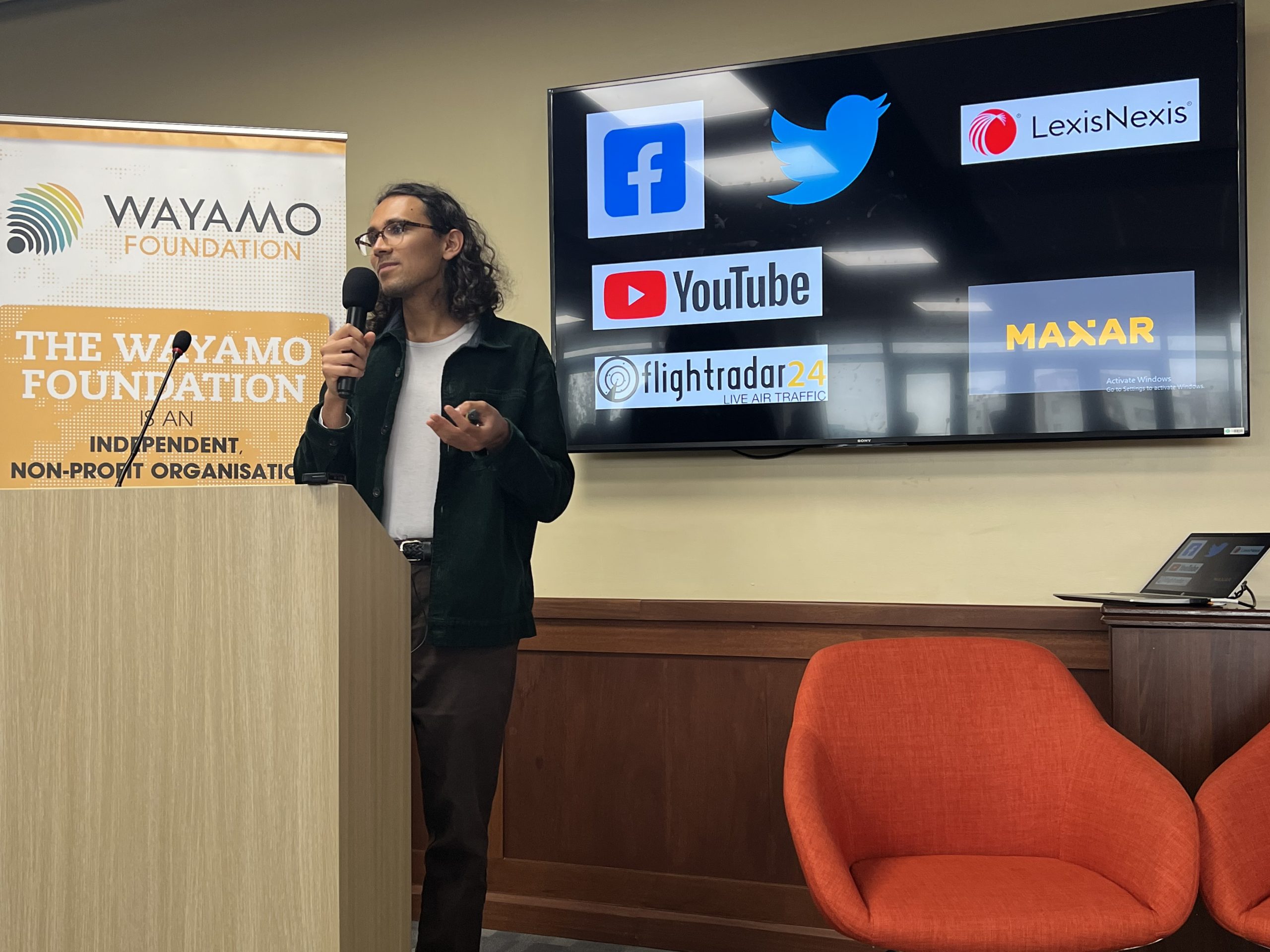
The final panel focused on the promise of open source investigations which can be conducted even when the researchers are outside of the conflict zone, and featured experts from Mnemonic and Gisa, which co-founded the Sudanese Archive, which, according to Mnemonic’s Mahasin Dahab, remains the largest existing memory of crimes committed in Sudan since 2019.
“We talk about open source investigation when the access to the space is impossible, said Mnemonic researcher Michael Elsanadi, noting that such investigations help to fill in the information gaps. “Open source information is one piece of the puzzle to prove a crime.”
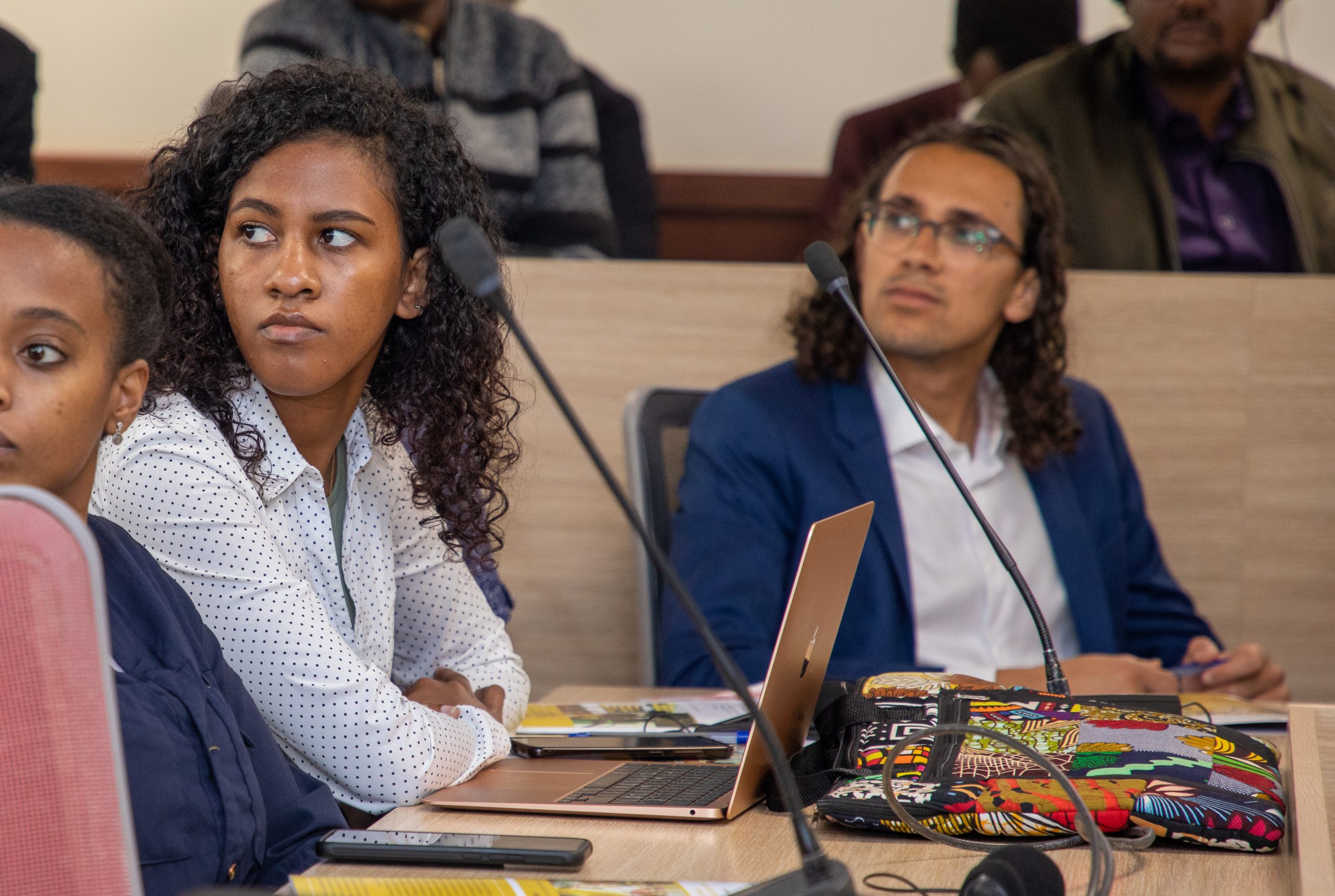
The Symposium was followed by a two day workshop for CSO representatives, human rights defenders, and journalists from the Sudanese diaspora.The workshop focused on documentation of international crimes and human rights violations for future accountability purposes. It featured experts from the International Criminal Court, Mnemonic and the Sudanese Archive, and who explored human rights documentation, international criminal law and the role of open source investigations, both broadly and in Sudan.
